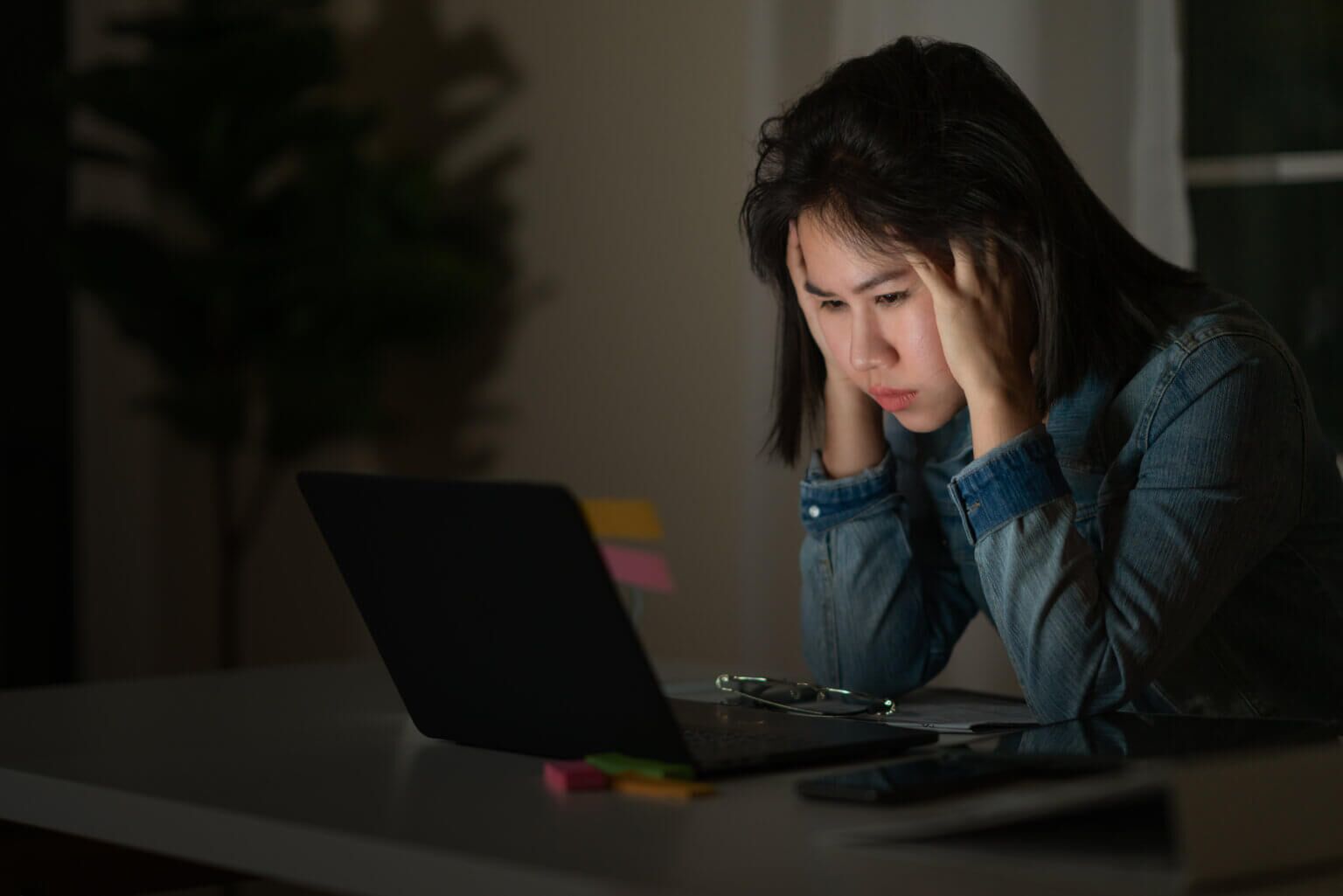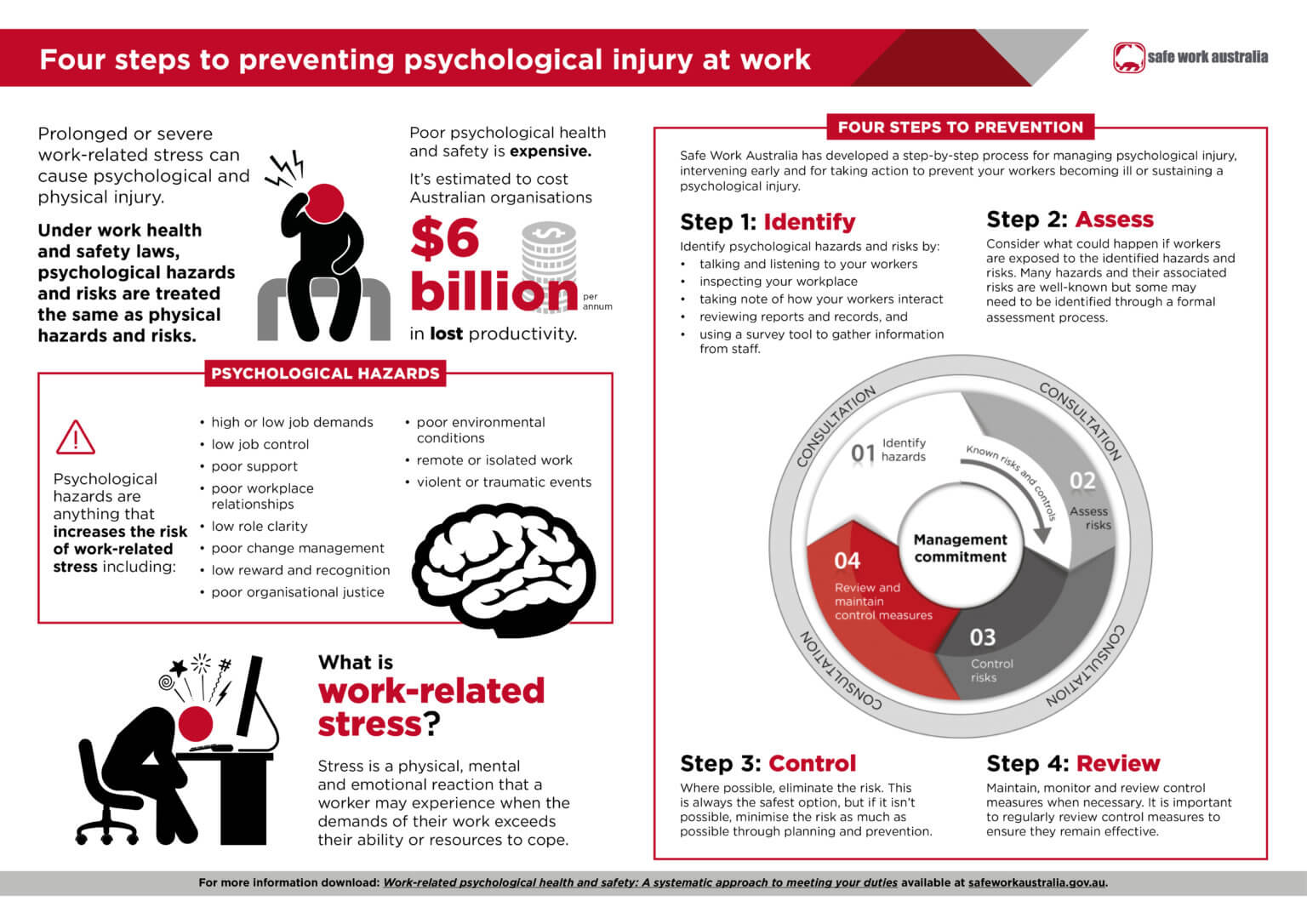Mental health in the new working world
- Updated
- 6 min
In leading my team through the challenges this year has presented, my first priority has been ensuring the safety and wellbeing of my staff – and key to that is mental health.
Despite the distance of a dispersed COVID workforce, the conversations I have had with my staff over the last six months have reiterated the importance of checking in on each other and creating a culture that is not only free of stigma and discrimination but proactively inclusive and open.
As we start to piece together what the new working world will look like, it is critical that we simultaneously build the knowledge, skills and capability of workers to be resilient and thrive at work – irrespective of whether that’s in the field, in an office, or in the home.
What is the new working world, and what are my responsibilities within it?
Remote working is not a new phenomenon, but COVID-19 has dramatically shifted office workers expectations of its availability and accessibility. According to a recent survey of executives and office workers in the US, most office workers want to work from home at least one day a week even when it is safe to return to the office.
With emerging technology improving remote working, it’s perhaps unsurprising to see the tech industry be a leading advocate of working from home. Google announced in July its roughly 200,000 employees would stay remote until mid-2021, and Twitter told staff they have the option to stay home permanently.

While not everyone is convinced, the traditional 9 to 5 workday structure will undoubtedly be challenged, as the lack of commute sees more flexibility in where we fit a full working day into our schedules.
However, while the change may suit many, leaders will need to play an active role in ensuring work health and safety (WHS) – which encompasses staff mental and health and wellbeing – extends into the home office.

As such, a person conducting a business has the primary duty to ensure, so far as is reasonably practicable, workers and other people are not exposed to psychological health and safety risks arising from the business or undertaking. This includes taking reasonable steps to gain an understanding of the psychosocial hazards and risks associated with the operations of the business or undertaking, and to ensure appropriate resources and processes are implemented to eliminate or minimise risks to psychological health.
The purpose of WHS laws is to eliminate or minimise risks to the health and safety of workers, and health is defined as psychological as well as physical health.
It’s also important to keep in mind that it’s not just WHS law that sees leaders responsible for their employees’ wellbeing. WHS and workers’ compensation laws do not operate in isolation, and other duties in relation to mental health arise out of compliance obligations around anti-bullying, anti-discrimination, fair work laws & privacy laws.
What are the benefits of a resilient workforce?
There are a multitude of benefits that arise from a mentally healthy workforce – both socially and economically.
A recent study found that for every $1 invested in mental health in the workplace, sees a return on investment of $2.30. This is the result of increased productivity and job satisfaction, and decreased absenteeism, occupational injuries and illness, work compensations claims, and turnover and selection costs.
Reaping the benefits of a thriving workplace requires an understanding of the influencers on poor mental health in the workplace.

Mental health can be adversely affected by exposure to a range of hazards or factors in the workplace, including, for example, high or low job demand, poor support and workplace relationships, low role clarity, poor organisational change management, remote or isolated work, violent or traumatic events, and poor environmental conditions.
It is also important to remember there may be external and non-work related stress factors, the most pressing being the COVID-19 pandemic. While employers may not have legal obligations in relation to that stress, it should be taken into account and – where possible – employers should consider what support and flexibility can be offered to employees to get through this difficult time.
How to build a resilient workforce?
While there is no substitute for the advice of clinicians and mental health professionals, we all have a role to play in creating a mentally healthy work community. A best practice approach to developing and sustaining a psychologically healthy and safe workplace should focus on mental illness prevention and mental health promotion.
When it comes down to it, general and mental health promotion is the process of enabling people to increase control over and improve their physical and mental health, through the combined efforts of employers, workers, and society focusing on healthy lifestyles, personal development and learning, and non-work-related factors in the general environment.
Well run initiatives can have positive effects on general and mental health, and help managers and workers build a supportive workplace culture.
When these types of strategies are combined with a robust risk management process, they can lead to better worker wellbeing. They can mean workers feel more comfortable reporting work-related psychosocial hazards and accessing professional counselling services if issues do arise.
Psychological hazards can be managed using the same risk management process applied to physical hazards.
Safe Work Australia has developed a step-by-step process for managing psychosocial injury, intervening early and taking action to prevent workers from becoming ill or sustaining a psychological injury.
This year has been challenging for everyone. Be it not being able to see loved ones, financial stress, or merely missing the office. It has never been more critical to check-in on each other and make sure we all feel supported in speaking up when we are not okay. For me and my team, it has meant figuring out how to get on with working from home and even getting rid of our permanent office space….for now.
We will spend time planning our next office that better suits a more flexible working world, more collaboration space and plenty of room to spread out to ensure even after there’s a COVID-19 vaccine, we can minimise the spread of other infectious diseases, like the flu. We’ve figured this out now right, so if we don’t put that information and learnings to no use, we lose the opportunity to grow.
If you, or anyone you know is struggling with mental health, Beyond Blue are providing 24/7 mental health support, both online and by phone, delivered by mental health professionals.
Get the latest news
Stay updated with the latest news and expert insights on compliance, legislation, and industry trends.

